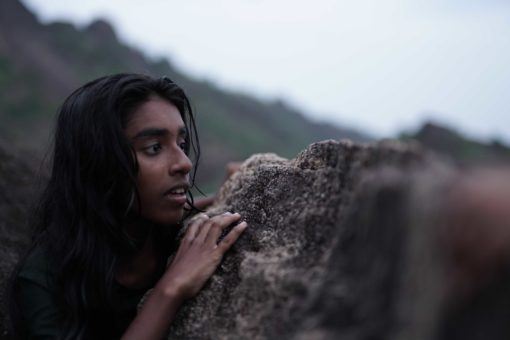 Image Courtesy: Leena Manimekalai
Image Courtesy: Leena Manimekalai
The Film Certification Appellate Tribunal (FCAT), New Delhi last week overturned the CBFC’s earlier ruling that imposed heavy cuts to Leena Manimekalai’s Tamil film Maadathy. The Regional Officer (RO) in Chennai had refused an A certificate to the film on the grounds of “Religious Contempt, Nudity, Strong Language and Portrayal of a Minor Girl in Infatuation” unless the prescribed cuts were made. Leena challenged the attempt to censor her film, citing that an A certificate would mean the film is viewed by a restricted audience, that the cuts would seriously undermine the social issues that the film tackles and the imposition on her freedom of expression.
Maadathy tells the story of Puthirai Vannart women, a dalit sub-caste. Puthirai Vannars are placed at the lowest level of the caste-hierarchy and are considered a “slave caste”. They are expected to wash menstrual clothing and those of the dead and bury bodies. They face immense oppression, even from other dalit castes who believe themselves superior – to the degree that they are told to remain “unseen”, because even looking at them is “polluting”. Women and minor girls face rampant, unchecked sexual violence. The film, through a cast of actors from the community, sheds light on these atrocities. The actors speak as they do in regular life, so the objection to “strong language” by the RO does not align with the social realities within the state of Tamil Nadu, in Leena’s view.
Speaking to the Indian Cultural Forum, Leena Manimekalai described how crippling the lack of a certificate from the CBFC is for independent filmmakers. “If you want a theatrical release or broadcast opportunities or to enter the film in festivals, the censor certificate (CC) is mandatory. Even if it is called an international film festival that takes place within the country, Indian entries must have a certificate. Especially with films like mine that have particular narrative style, we rely largely on film festivals abroad. I can apply to Cannes without the certification, but not to the Pune International Film Festival (PIFF). International Film Festival of Kerala (IFFK) does take films without the CC. There are a few other festivals that do that, but they aren’t always courageous enough to take such films.” She also added that in the case a film hasn’t been cleared by the CBFC, a festival can apply for an exemption from the Ministry of Information and Broadcasting for the sole purpose of being screened at the venue. Often it happens that this exemption is not granted if the film is political.
The need is for the CBFC to function primarily as a certification authority rather than as a censor. There are legal complexities to this and the burden of navigating through the legal waters is often on young filmmakers who operate on modest budgets. Indira Unninayar, who represented the filmmaker at the Tribunal hearing has previously guided us through these complexities, when she spoke to ICF. “The Act certainly empowers the CBFC to evaluate a film based on certain guidelines. The guidelines have some normative value which the government has placed as a benchmark for the CBFC to evaluate a film. But the purpose is not to be sitting there with the intention to chop and cut and say that I have the power to chop this thing until you make the cuts to the film” she told us.
Indira represented Leena when her debut film, Sengadal (The Dead Sea) was banned by the CBFC. Sengadal dealt with the lives of Srilankan Tamil refugees living on the border shores and the difficulties they faced due to the actions of the Tamil Nadu and Central governments. The Chennai Regional Office of the CBFC had initially refused to pass the film fearing a strain on Indo-Sri Lankan diplomatic ties. It was later cleared by the Tribunal without cuts. Unninayar has also represented Anand Pathwardhan when his film was facing censorship as well.
Going forward, Maadathy has been selected for the Busan International Film Festival this year. Leena aims for a theatrical release in some months after the film has shown at more festivals.
Read More:
Maadathy: Let the Gods Tell their Own Stories
The Exclusions in the International Film Festival of India (IFFI) 2018: Some Thoughts




